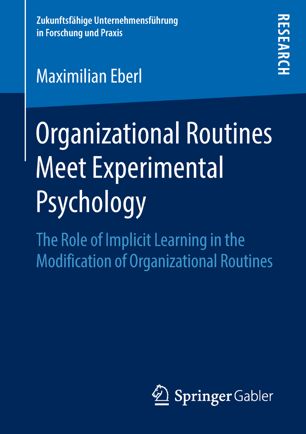

Most ebook files are in PDF format, so you can easily read them using various software such as Foxit Reader or directly on the Google Chrome browser.
Some ebook files are released by publishers in other formats such as .awz, .mobi, .epub, .fb2, etc. You may need to install specific software to read these formats on mobile/PC, such as Calibre.
Please read the tutorial at this link: https://ebookbell.com/faq
We offer FREE conversion to the popular formats you request; however, this may take some time. Therefore, right after payment, please email us, and we will try to provide the service as quickly as possible.
For some exceptional file formats or broken links (if any), please refrain from opening any disputes. Instead, email us first, and we will try to assist within a maximum of 6 hours.
EbookBell Team

4.3
28 reviewsUsing an experimental approach, Maximilian Eberl evaluates the role of implicit learning (CBM/AAT) for the modification of organizational routines. Taking a vertical perspective on the (collective) entities in organizations shows an increasing role of impulsive processes the lower the level gets. The horizontal perspective demonstrates the potential of implicit learning for the replication of routines. Finally, the time perspective highlights the contributions of implicit learning strategies for change in and of routines, as well as the contributions of implicit learning to deal with the path-dependence of routines.